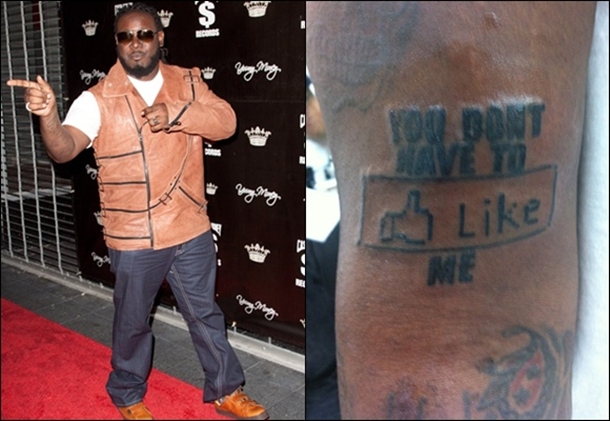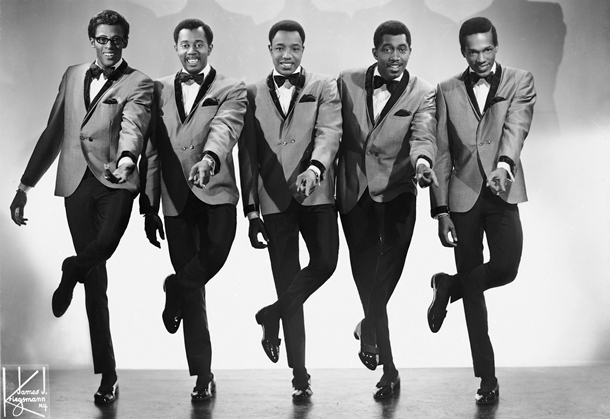Today Frank Ocean is in constant rotation on urban radio stations and has been set on a path to become a household name. But before he wrote songs for Beyonce’s ‘4,’ landed on Jay-Z and Kanye West’s ‘Watch the Throne’ album and switched his stage name from Lonny Breaux to Frank Ocean; he was on the bottom of Def Jam’s priority list.
“I signed my paperwork at the end of ’09. It was official by January 2010. Outside of the contract and the paperwork, there was no relationship. I never walked through the building. I never had an opportunity to build with them, because of some other sh*t within the company. All I knew was that I was an artist, and I didn’t have a relationship with my label.”
Def Jam held off on releasing his debut “Nostalgia, Ultra,” to Ocean’s despise. OFWGKTA’s resident crooner took matters into his own hands, offering the album as a free download on his tumblr website. He ranted via his Twitter page, “I. did. this. not ISLAND DEF JAM. that’s why you see no label logo on the artwork that I DID. guess its my fault for trusting my dumbass lawyer and signing my career over to a failing company. F**k Def Jam & any company that goes the length of signing a kid with dreams & talent w/ no intention of following through. F**k em.”
The feedback from the project became such a sensation that Def Jam took notice and decided to release it in stores. In the end, Ocean made Def Jam pay attention by giving fans material they desired.
2011 was an unforgettable year for music and entertainment. In this article, we will be reflecting on one of the most memorable moments from that year: Frank Ocean’s dispute with Def Jam Records. It was a battle between two giants in their respective industries, and it captivated fans around the world as they waited to see who would emerge victorious.
The story started when Frank Ocean signed with Def Jam Recordings in 2009, much to the delight of his dedicated fanbase. He’d spent years grinding away at various projects before finally making waves in the industry, so many were eager to hear what he could do with the support of such a reputable label behind him. But little did anyone know that just two years later, tensions within the partnership would reach boiling point.
Def Jam had big plans for Frank Ocean – but those plans didn’t align with his creative vision or personal goals. And so began a highly-publicized standoff between artist and label which eventually ended up in court… Stay tuned to find out how it all unfolded!
Background Of The Dispute
Frank Ocean and Def Jam Records have a long, complex relationship. It began in 2008 when Frank was first signed to the label as part of rap collective Odd Future Wolf Gang Kill Them All (OFWGKTA). Since then he has released two solo albums under the Def Jam name – 2012’s Channel Orange and 2016’s Blonde – both of which were critically-acclaimed works that showcased his talent for mixing classic R&B with indie rock stylings.
However, despite this success, there is a history of conflict between the singer-songwriter and record company. In 2017 things came to a head when Frank filed suit against Def Jam over issues related to royalty payments from digital downloads and streaming services. This resulted in an out-of-court settlement where the label agreed to pay him additional royalties going forward, but it also highlighted how strained their relationship had become.
The dispute illustrates one of the key challenges facing artists today: how to maintain creative control while still reaping financial rewards from their work? As technology advances so too do opportunities for musicians, but these can be undermined by traditional labels who are more focused on short term profits than artist growth. Fortunately for fans, neither party appears willing to give up on their partnership just yet; they may not always see eye-to-eye but together they create some truly memorable moments.
Outcome Of The Conflict
Despite the tension between Frank Ocean and Def Jam Records, both parties ultimately reached an agreement out of court. The settlement saw Def Jam agree to pay him additional royalties for his digital downloads and streaming services as well as making other changes to their contractual relationship that allowed Frank more creative control over his work. This was a major victory for the singer-songwriter, who had been seeking greater autonomy from the label since 2008 when he was first signed with them.
The outcome of this dispute is indicative of how many artists are now navigating their relationships with traditional labels in the digital age. As technology has evolved so too have the opportunities for musicians – allowing them to take advantage of new revenue streams while also retaining some degree of independence. By finding a way to balance these two priorities, it gives artists like Frank Ocean the freedom they need to continue creating memorable music without compromising on commercial success.
Ultimately, although there were several moments of contention between Frank and Def Jam throughout their ten-year partnership, they remain committed to working together in order to produce great music. They may not always agree but their collaboration continues to create dynamic sounds that capture the imagination and inspire fans across genres; truly making each song or album a unique experience worth savoring.
Conclusion
In conclusion, Frank Ocean and Def Jam had a dispute that caused quite the stir in 2011. It was an interesting journey to follow throughout the year, as both sides battled for what they believed was right.
Frank ultimately won out, with Def Jam caving into his demands after months of negotiations. This showed how powerful he was able to be even when confronting one of the biggest record labels in music. His success is inspiring to other artists who find themselves caught up in similar disputes, proving that it’s possible to come out on top if you stand your ground and fight for yourself.
It’s clear that this conflict will remain memorable for years to come as an example of what can happen when two parties have different beliefs but are still able to reach a resolution through negotiation. Even though it wasn’t easy, both sides were able to work together and achieve a positive outcome – something we should all strive for no matter our differences.
Since 2005, Singersroom has been the voice of R&B around the world. Connect with us via social media below.








